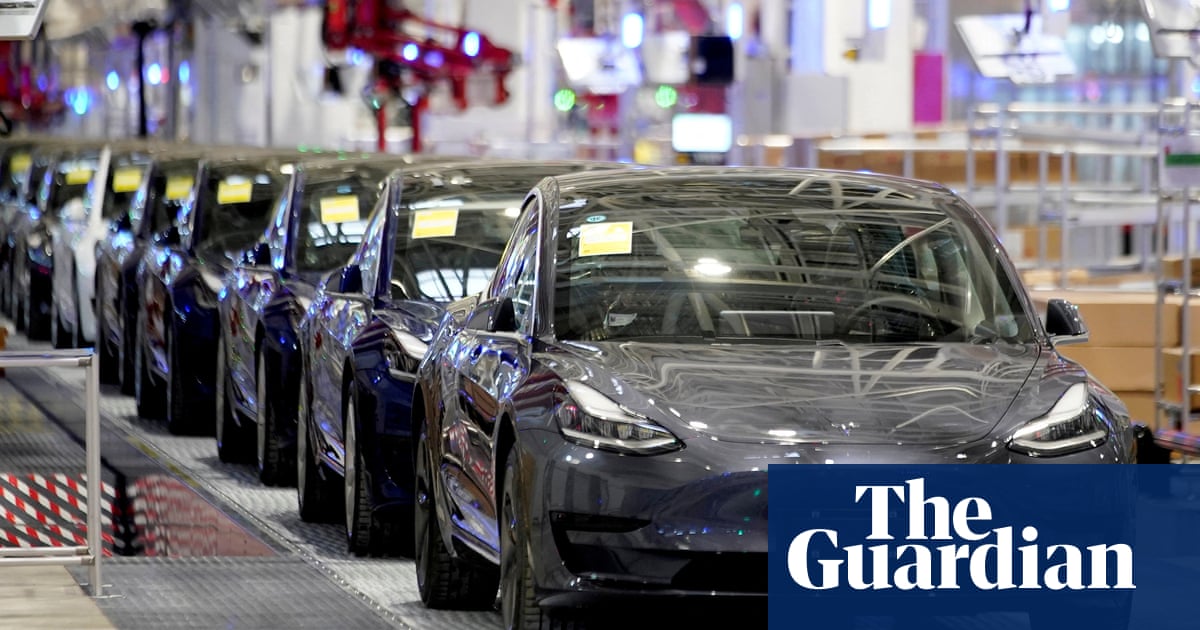The European Union (EU) has made a move in the trade tensions with China by lowering its proposed tariffs on Tesla’s electric vehicles (EVs) manufactured in China. The EU had considered imposing a 20.8% tariff on Tesla’s Chinese-made cars, but after a reassessment based on the specific subsidies Tesla received, the EU has now reduced this rate to 9%.

Also Read: Acura Performance EV Concept Unveiled at Monterey Car Week
In July 2024, the EU’s executive arm proposed a steep tariff of 20.8% on Tesla vehicles manufactured in China. This proposal was part of a investigation into subsidies provided by China to its EV industry.
Tesla requested that the EU reassess its tariff rate. Tesla argued that the specific subsidies it received were lower compared to those granted to Chinese EV manufacturers.
On August 20, 2024, the EU announced a revised tariff rate of 9% for Tesla. This reduction is based on the Commission’s findings that Tesla receives fewer subsidies from China than its Chinese counterparts.
The EU launched its anti-subsidy investigation with the aim of countering what it considers to be unfair advantages enjoyed by Chinese EV manufacturers.
The investigation is the EU’s probe into alleged Chinese subsidies to date and has already sparked threats of retaliation from Beijing.
The investigation focused on various Chinese EV producers including BYD, Geely and SAIC. The EU Commission sent a team to Tesla’s facilities in China to verify the subsidies the company received and to ensure that the tariffs were calculated fairly.
The EU Commission also Announced Final Tariffs for Several Chinese EV Manufacturers:
- BYD: Initially proposed at 17.4%, the final tariff rate was reduced to 17.0%.
- Geely: Originally facing a 19.9% tariff, Geely’s rate was reduced to 19.3%.
- SAIC: SAIC, which produces MG vehicles saw its tariff reduced from 37.6% to 36.3%.
Companies that did not cooperate with the EU’s investigation are subject to a maximum tariff of 36.3%.
The EU Commission justifies these tariffs as necessary to counteract the subsidies that Chinese EV manufacturers receive. These subsidies give Chinese firms an unfair competitive advantage in the European market.
These tariffs are in addition to the EU’s standard 10% duty on car imports.
The European Commission has been conducting an investigation into the subsidies provided by the Chinese government to its domestic EV manufacturers.
Also Read: Ford and Mazda Alerts Over 475,000 Vehicles Due to Dangerous Takata Airbags
In July 2024, the European Commission initially announced provisional tariffs on Chinese-made EVs. These tariffs were part of an anti-subsidy investigation aimed at countering what the EU perceived as unfair subsidies provided by the Chinese government to its EV manufacturers.
These adjustments represent minor reductions from the provisional tariffs announced in July, except for Tesla, which saw a decrease in its tariff rate from 20.8% to 9.0%.
Tesla’s substantial reduction in tariffs can be attributed to the company’s successful appeal for an individual examination by the European Commission.
Tesla requested that its tariff rate be calculated based on the specific subsidies it had received, rather than being lumped together with other Chinese EV manufacturers.
The European Commission granted this request and conducted a thorough investigation which included a visit to Tesla’s manufacturing facility in Shanghai in June 2024.
During this visit the Commission verified the level of subsidies Tesla had received from the Chinese government.
The investigation concluded that Tesla benefited from fewer subsidies compared to other Chinese EV manufacturers. As a result the European Commission determined that a lower tariff rate was justified for Tesla’s China-made vehicles.
If a qualified majority of EU member states does not block the measures, the European Commission will publish the final regulation by October 30, 2024.
These tariffs would then remain in effect for five years with the possibility of extension after a review.
Ongoing talks between Brussels and Beijing aim to find a resolution that complies with World Trade Organization (WTO) rules.
Also Read: Lamborghini Temerario: A 907bhp Hybrid Beast that Replaces the Huracan V10
























